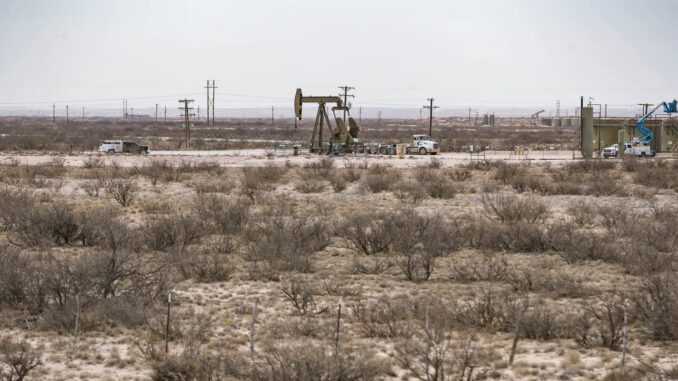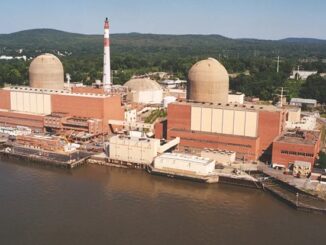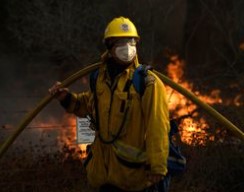
A bill that could unlock federal funds to help clean up abandoned oil and gas wells while also raising bonding rates energy companies pay to fund such efforts passed a Congressional committee this week after debate between Democrat supporters of the measure and Republican opposition.
U.S. Rep. Teresa Leger Fernandez (D-NM) introduced the Orphaned Wells Cleanup and Jobs Act of 2021 on April 8, and the House Natural Resources Committee passed the bill Wednesday on a 22-17 vote.
It could next be sent to other House committees ahead of a vote on the House Floor.
The Act, if passed, would earmark $7.25 billion in grant funding for cleaning up orphaned wells on state and private lands, $400 million for wells on federal land and $300 million for clean up on Tribal lands.
It was also intended to strengthen regulations to prevent wells from being abandoned in the future, increasing the minimum federal land oil and gas bonding amounts to $150,000 for all an operator’s wells on an individual lease and $500,000 for an operator’s wells in an entire state.
The bill would also spend $50 million for research into undocumented abandoned wells and require that materials used to plug wells, such as steel and iron, be made in the U.S.
Leger Fernandez pointed to up to 700 orphaned wells in New Mexico alone, and an $8 million gap in bonding dollars compared with the actual cost of cleanup, as reported by the New Mexico State Land Office.
And plugging wells could create more jobs with skills transferrable from oil and gas production, she said.
“It’s time we start holding oil and gas companies responsible for their mess,” Leger Fernandez said. “The Orphaned Well Cleanup and Jobs Act will do just what it says – clean up the orphaned wells polluting our waters and air and create jobs in the communities that fueled the power and progress of America.”
When wells are abandoned and bonding paid by the operator are insufficient to cover the cost, Leger Fernandez worried the American taxpayer was forced to pick up the bill.
She said that was unacceptable.
“We cannot allow taxpayers to get left holding the bag,” Leger Fernandez said. “This bill is a critical first step toward addressing the climate crisis and investing in our rural, legacy fossil fuel communities.”
During the committee markup hearing, the Act faced opposition from Republicans, including U.S. Rep. Yvette Herrell – New Mexico’s lone GOP congressperson – who argued it would increase financial burden on energy companies the state depends on for a large segment of its economy.
Herrel said there was bipartisan support for cleaning up orphaned wells across the country, but the Act was part of a “crusade,” she said, against the oil and gas industry.
She said added costs associated with the bill could cause more operators, especially smaller companies, to go out of business, and ultimately abandon more wells.
“Included in this bill are previsions that have nothing to do with reclaiming orphaned wells, and provisions that impose new and unnecessary regulations on producers,” Herrell said.
She argued the bill was part of a broader effort by Democrats and President Joe Biden’s administration to curtail oil and gas production on federal lands, after the Department of Interior placed and indefinite halt on new oil and gas leases on federal land as it reviewed its fossil fuel programs.
Federal energy production, Herrell said, was especially important to her home state of New Mexico, where more than half of production occurs on federal land while the industry funds about a third of the State’s budget.
She proposed an amendment to remove the language increasing bonding requirements, which was defeated by vote after Leger Fernandez argued bonding rates hadn’t been adjusted in years although wells became deeper – more complex – and more expensive to reclaim.
“These excessive regulations will build on the efforts of the Biden administration to make producing on federal lands less attractive by the day, which is especially troublesome for my state,” Herrell said. “You cannot claim this bill creates jobs while also putting companies out of business and eliminating the jobs of the people they employ.”
The Act also faced opposition from oil and gas industry groups who argued changes to bonding requirements should be led by State regulators not the federal government.
Robert McEntyre with trade group the New Mexico Oil and Gas Association pointed to the Revive Economic Growth and Reclaim Orphaned Wells (REGROW) Act by U.S. Sen. Ben Ray Lujan, also a New Mexico Democrat, as a “bipartisan” and “environmentally sound” piece of legislation to address orphaned wells without bringing financial hardship to the industry.
The REGROW Act was referred to the Senate Committee on Energy and Natural Resources and was awaiting a vote.
Recently, New Mexico Gov. Michelle Lujan Grisham, along with a group of Democrat and Republican governors, signed on to a letter to Congress in support of the REGROW Act.
It would provide $4.275 billion for well cleanup on state and private lands, $400 million on federal and Tribal lands and $32 million for research without adjusting bonding requirements.
McEntyre also argued that New Mexico had updated its bonding requirements in 2018, and that such policy should be left to state regulators with consultation from the industry.
“We support sound and environmentally responsible efforts to assist states in their programs to plug and remediated orphaned wells,” he said. “Bipartisan legislation, like the REGROW act, would help advance sound and environmentally responsible practices to address these sites across the country.”
Larry Behrens, Santa Fe-based Western States Director with Power the Future, a group that advocates for the oil and gas industry, called the Leger Fernandez’s bill a “back-door attack” on American energy workers by singling out fossil fuel production and aiming to drive up its costs.
He said renewable energy sectors like wind and solar are unfairly not held to the same standards or stringent regulations as oil and gas.
“Several members of the committee worked to amend this bill to try and ensure gas prices don’t increase or that emissions associated with solar panels and wind turbines are studied, but each one of those amendments was rejected,” Behrens said.
“Advocates of the legislation refuse to protect consumers or hold wind and solar power to fair standards because their singular goal is to destroy jobs and push a green agenda.”



